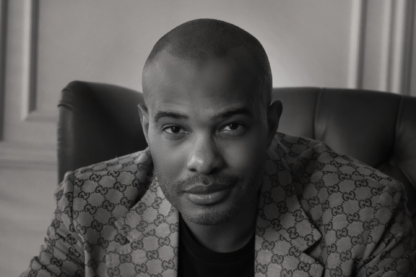In this exclusive conversation, Alexander Chetchikov, President of the World Luxury Chamber of Commerce, sits down with Sheetal Jain, the Founder and CEO of Luxe Analytics. A respected researcher, educator, and strategist, Sheetal has been at the forefront of guiding luxury brands through the rapidly evolving landscape of consumer behavior, sustainability, and digital transformation. With a keen eye on emerging markets and shifting values, she shares her deep insights into how luxury is being redefined for a new generation of global consumers.
Alexander Chetchikov: As the Founder & CEO of Luxe Analytics, you specialize in helping luxury brands navigate growth and revenue challenges. What are some of the most significant shifts you’ve observed in luxury consumer behavior over the past few years, and how should brands adapt?
Sheetal Jain: Luxury spending is increasingly shifting from goods to experiences. This shift reflects a desire for memories and unique experiences over material possessions. Hence, brands should focus on creating memories for their customers during their purchase journey.
Alexander Chetchikov: Your expertise spans research, strategic advisory, and education in luxury, retail, and sustainability. How do you see the role of sustainability evolving in the luxury sector, and what strategies should brands adopt to balance exclusivity with environmental responsibility?
SJ: Sustainability will play an ever-increasing role in the luxury industry due to increased awareness and preference among consumers to indulge in sustainable consumption. Brands should embed sustainability as a core element across their functional areas and supply chain to ensure the transition to a sustainable brand.
Alexander Chetchikov: With your experience as an adjunct faculty member teaching luxury marketing and consumer behavior, what are the key insights or skills that aspiring luxury professionals need to succeed in today’s market?
SJ: Luxury professionals need to understand the unique attributes, needs, and preferences of today’s luxury consumer that not only greatly vary across countries, cultures, and demographic characteristics (age, gender, etc.), but are also evolving as per changing global trends. Hence, luxury professionals need to continuously upskill and continuously learn about the latest trends in the luxury industry in order to be successful.
Alexander Chetchikov: As an internationally published author and researcher, you have a deep understanding of luxury market intelligence. Can you share a particularly surprising or counterintuitive insight from your research that challenges conventional wisdom in the luxury industry?
SJ: One particularly surprising finding is the significant role of digital platforms in influencing luxury purchase decisions among young Indian consumers. The study highlights that online luxury shopping is gaining momentum, challenging the traditional reliance on physical retail channels. This shift towards digital platforms not only provides convenience but also extends the reach of luxury brands to a broader audience, including those in tier 2 and tier 3 cities.
Traditionally, luxury brands have been associated with exclusivity and a strong emphasis on physical retail experiences. However, my study reveals that hedonic value, which relates to the pleasure derived from consumption, is a key predictor of young consumers’ attitudes toward purchasing luxury fashion goods. This suggests that the emotional and experiential aspects of luxury consumption are increasingly important, potentially more so than the traditional emphasis on exclusivity.
Additionally, my research on the sharing economy reveals that social projection value, which pertains to the desire to project one’s identity and status, is a significant predictor of luxury fashion rental consumption among Indian millennials. This challenges the traditional view that luxury consumption is solely about ownership and suggests that access-based consumption models, such as rentals, are gaining traction among younger consumers.
These insights collectively challenge the conventional wisdom that luxury consumption is primarily driven by exclusivity, ownership, and traditional retail experiences. Instead, they highlight the growing importance of emotional engagement, digital accessibility, and evolving consumption models in shaping luxury purchase behaviors.
Thank you, Sheetal!
Sheetal’s insights highlight the importance of adaptability, education, and innovation in an industry rooted in tradition yet constantly evolving. With voices like hers shaping the narrative, the future of luxury looks not only promising—but purpose-driven.
Stay Ahead in the Luxury Industry – Join the World Luxury Chamber of Commerce and Subscribe to Our Exclusive Newsletter for Insights, Networking Opportunities, and Access to Industry Leaders.





